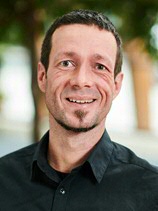Decentralized energy infrastructure in the context of long-term energy transition | Gideon Laugs

Field | Discipline
Expertise
Summary
Driven by the double bind of declining fossil fuel reserves and concern over emissions thereof, the worldwide energy system is facing a transition towards a more sustainable energy supply. The many unknown techno-economical and socio-political variables in that transition are the cause of great uncertainty with regard to the spectrum of possible energy futures. This uncertainty increases the more long-term a time horizon is considered, and extends from micro to macro-level geospatial scales.
Over the last years, a vast array of future energy scenarios has been published each trying to get a grip on (part of) the uncertainty that surrounds the future of energy. These scenarios span a wide range of types, backgrounds and methodologies, and may or may not be biased by the backgrounds of the authors. As a result, the spectrum of outlooks on the energy future ranges from a revolutionary breakthrough of energy from renewable sources to a more gradual business-as-usual based change involving various degrees of incremental technological advances. Part of this research is a thorough analysis of such scenarios to understand the systemic reciprocal effects of variables and drivers behind energy transition pathways.
For the Netherlands, the discussion that surrounds energy transition is further complicated by the combination of a decades long history with natural gas and a desire to maintain its position in the international energy market, prolong the usefulness of the domestic gas infrastructure, and improve the sustainability of the Dutch energy supply. Biogas is one of the technological options considered for a transition towards a more sustainable energy supply. In addition to its emission-poor and renewable character, it might make convenient use of (part of) the existing Dutch gas infrastructure and could combine well with other forms of energy.
The key to unlocking the true functional potential and benefits of biogas for the energy system as a whole may lie in the use of some form of buffering to allow balancing supply and demand. Research into gas buffering through storage is so far limited to mainly centralized, large-scale storage of natural gas for seasonal demand fluctuation mismatch mitigation. The potential of small-scale, local storage of biogas remains largely underexposed, as are the practicalities of and mutual influences between such applications of biogas and its setting in a diverse (renewable) energy mix. Through the design and implementation of a model that simulates such energy infrastructure, this research should provide insights into the position of biogas as an enabler of renewables-oriented decentralized energy infrastructure.
This research ultimately ties together the ‘top-down’ view on energy transition pathways and the ‘bottom-up’ view on decentralization vis-à-vis biogas and other renewables using elements from transition management theory. The integration between the two parts involves a further assessment of socio-economic factors that drive or limit such transition. These insights combined answer this research’s central question: “Within a bandwidth of potential short, medium and long-term energy futures, to what extent does the implementation of gas storage on different levels of scale affect the perspective on the overall role of gas in a post-energy transition, future proof energy supply system for the Netherlands?”
Supervision by
-
Promotor Prof. dr. H.C. Moll | Integrated Research on Energy, Environment and Society - IREES | ESRIG, University of Groningen.
-
Co-promotor Dr. R.M.J. benders | Integrated Research on Energy, Environment and Society - IREES | ESRIG, University of Groningen.
-
Co-promotor Dr. H.J. van der Windt | Integrated Research on Energy, Environment and Society - IREES | ESRIG, University of Groningen.
More information and contact details can be found on the personal profile of Gideon Laugs
| Laatst gewijzigd: | 27 februari 2024 08:54 |
